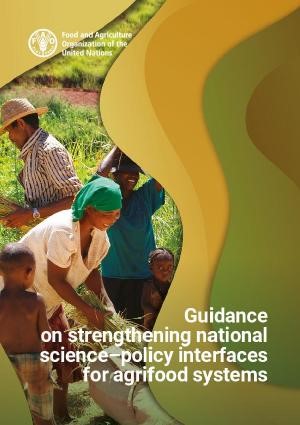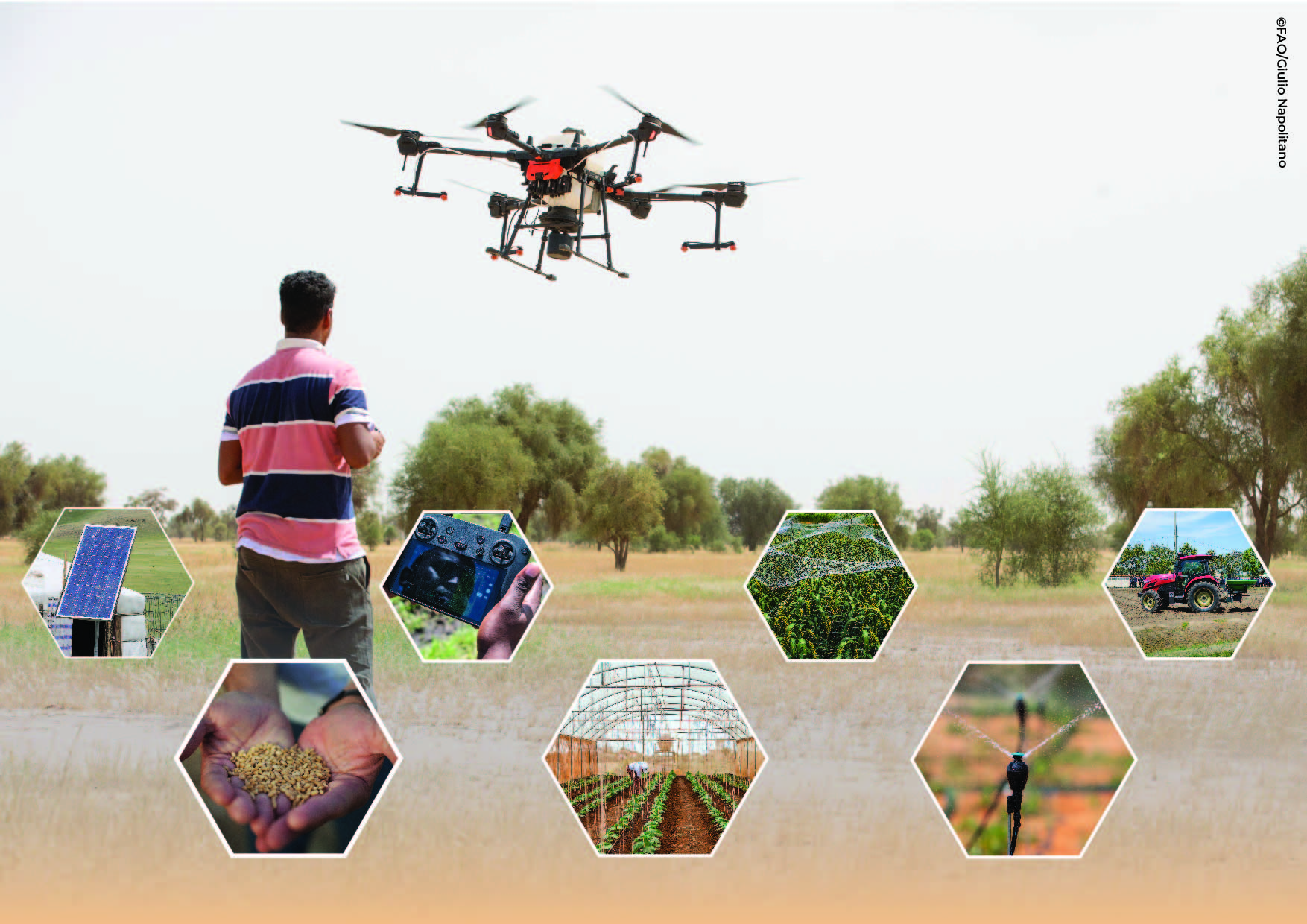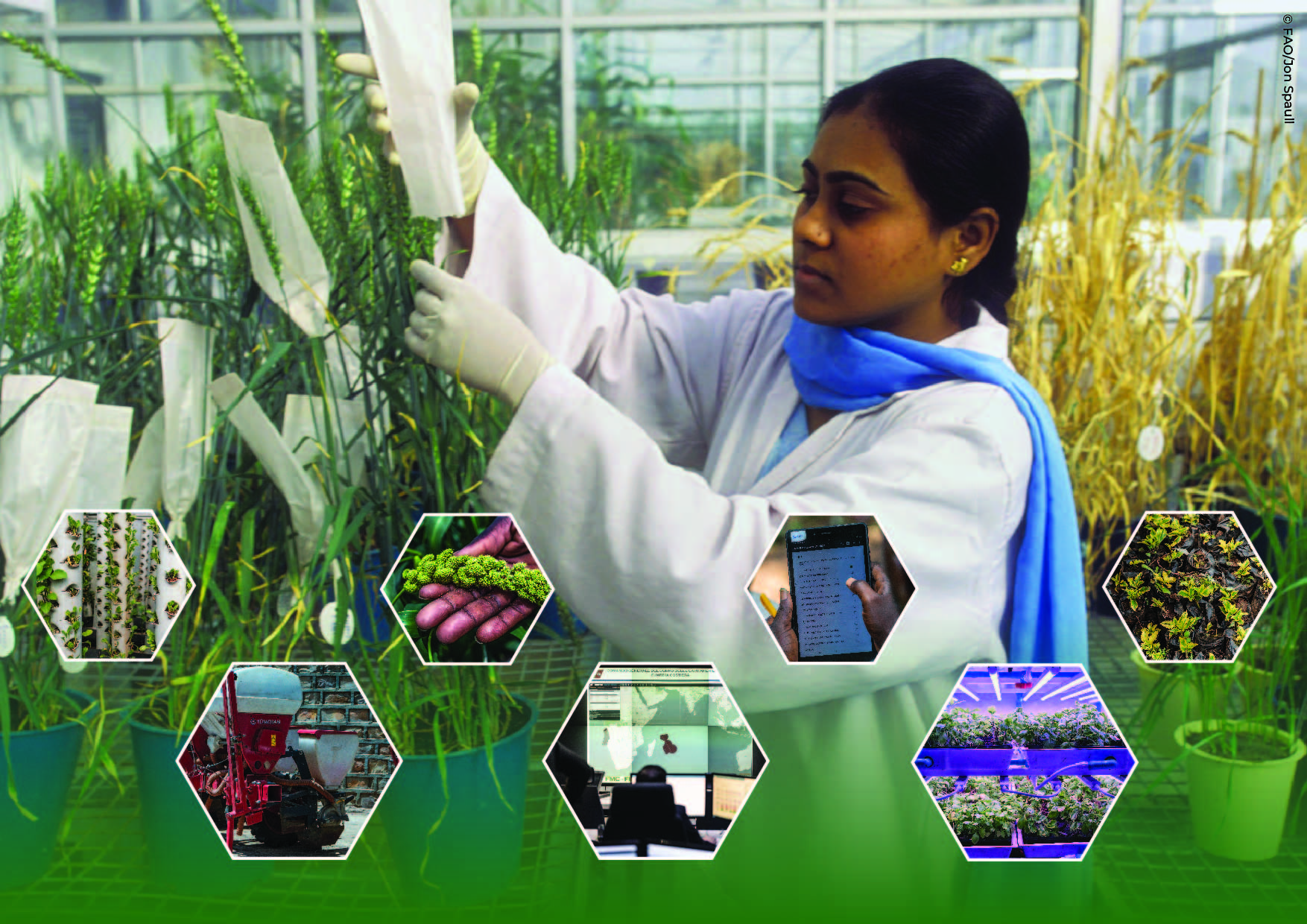农业粮食体系面临与气候变化、生物多样性损失、移徙、冲突、经济不稳定和2019冠状病毒病(COVID-19)相关的复杂和前所未有的挑战。收入不平等日益加剧,许多农村人口生活在贫困或赤贫之中。世界无法到2030年顺利实现零饥饿。
粮农组织认为,科学、技术和创新可加速转型,建设更高效、更包容、更有韧性且更可持续的农业粮食体系,实现更好生产、更好营养、更好环境和更好生活,不让任何人掉队。最新情况


出版物
Investing in trade digitalization: the case of ePhyto
03/2025
Global trade in plants and plant products is rapidly expanding – more than doubling in some cases – and set to grow another 11 percent by 2032. Yet,...

出版物
Guidance on strengthening national science–policy interfaces for agrifood systems
11/2024
In line with its Science and Innovation Strategy, FAO has developed this guidance on strengthening science–policy interfaces (SPIs) for agrifood systems...

活动
FAO Global Agrifood Biotechnologies Conference
16/06/2025 - 18/06/2025
As part of its 80th Anniversary celebrations, FAO is organizing a Global Agrifood Biotechnologies Conference entitled “Biotechnologies for a Sustainable...
主要信息
粮农组织在科学、技术和创新中的作用
粮农组织为加强科学、研究和发展之间的联系做出贡献,并且确实在促进科学发展(如通过数据工作,并开展创新(如食品法典等制度创新、农民田间学校等社会创新、“手拉手”行动计划地理空间平台等技术创新。
粮农组织将其他行为主体开发的科学和创新转化为促进发展的实用工具和政策指导。粮农组织就创新做法、方针、方法和工具向各国提供支持。粮农组织还支持科学驱动的创新进程、平台和多利益相关方机制。
由于其作为联合国专门机构和政府间进程促进机构的独特地位,粮农组织能够通过全球共同议程,将农业粮食体系各部门的技术、发展和金融伙伴、政策制定者、生产者、科学家和创新人员联系起来。粮农组织的治理机构和法定机构是科学和政策的对接方。粮农组织具备独特优势,能够召集农业粮食体系所有行为主体探讨和辩论有争议的科学问题,包括普遍存在的权力不对称和社会经济不平等问题。粮农组织还具备独特优势,能够支持成员加强国家政策框架,促进科学和创新,同时确定区域和全球层面的研究重点,并向主要研究机构传达。



科学、技术和创新与可持续发展目标
科学、技术和创新是《2030年可持续发展议程》的核心,并出现在众多可持续发展目标具体目标中。若干与农业粮食体系相关的可持续发展目标涉及技术(分别针对农业和农村基础设施、用水和海洋技术的可持续发展目标2a、6a和14a)。其他可持续发展目标包括与能源、妇女赋权、基础设施和工业化以及实施手段(包括伙伴关系)有关的具体技术目标。创新关系到发展中国家的经济生产力、创造体面就业、产业发展和能力。科学(以及技术和创新)是实现可持续发展目标的关键手段。《2030年议程》技术促进机制及其联合国机构间科技创新工作组(粮农组织是积极成员)提供了多利益相关方合作机制,促进联合国系统内部协调。


















